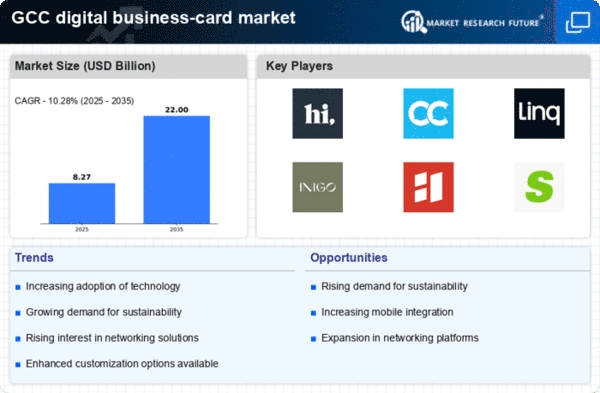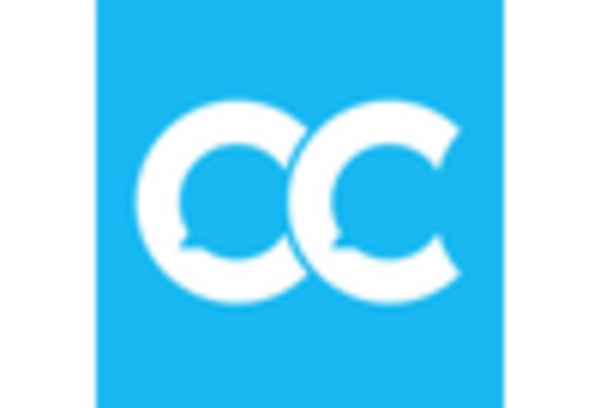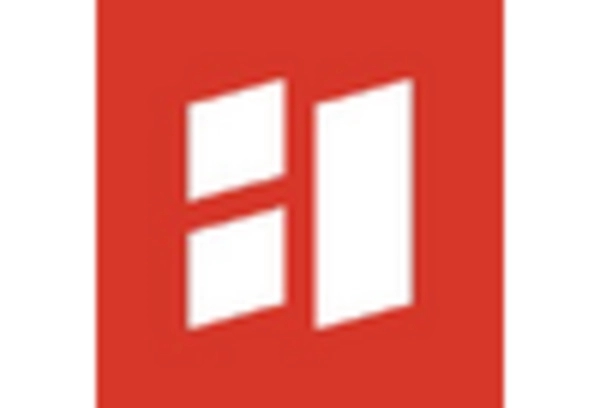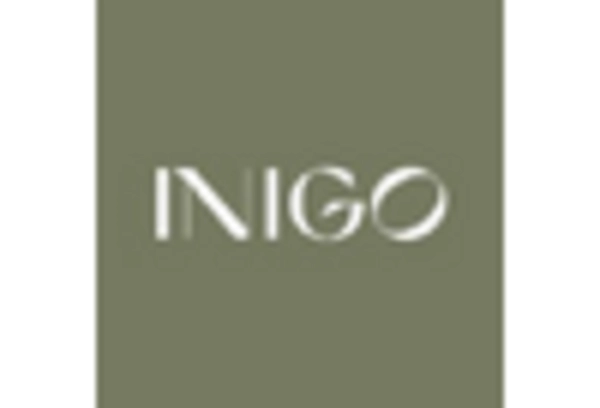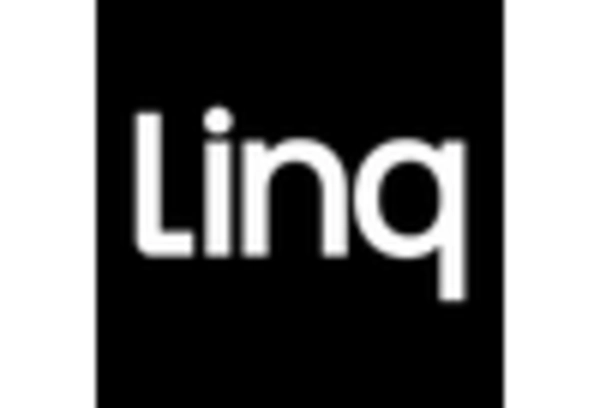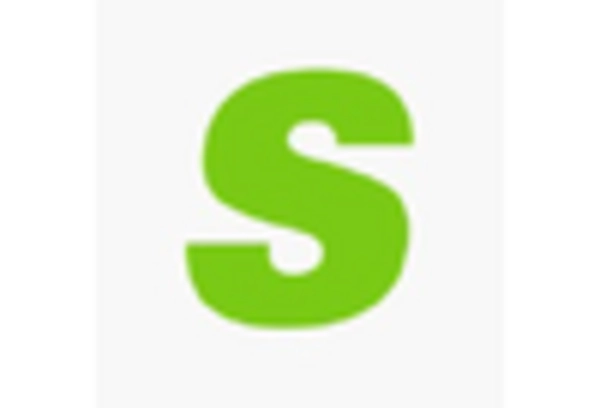Increased Focus on Data Security
The digital business-card market is seeing an increased focus on data security, as businesses in the GCC become more aware of the importance of protecting sensitive information. With the rise of cyber threats, organizations are prioritizing secure methods for sharing contact information. This has led to the development of digital business cards that incorporate encryption and secure sharing features. Market Research Future suggests that approximately 40% of businesses in the region are now seeking solutions that ensure data privacy and security. As a result, the digital business-card market is likely to evolve, with providers enhancing their offerings to meet these security demands, thereby fostering greater trust among users.
Shift Towards Contactless Solutions
The digital business-card market is benefiting from a notable shift towards contactless solutions, driven by changing consumer preferences and safety concerns. In the GCC, where businesses are keen on adopting modern technologies, the demand for contactless interactions is rising. This trend is reflected in the increasing use of QR codes and NFC technology, which allow users to share their digital business cards effortlessly. Market data indicates that the adoption of contactless solutions in the region has grown by approximately 25% over the past year. As organizations seek to enhance customer experiences while minimizing physical contact, the digital business-card market is poised for significant growth, potentially reaching a valuation of $500 million by 2027.
Rising Demand for Digital Transformation
The digital business-card market links closely to the broader trend of digital transformation across various sectors in the GCC. Organizations are increasingly recognizing the need to modernize their operations and enhance their digital presence. This shift is evident in the growing investment in digital tools and platforms, with estimates suggesting that the GCC's digital transformation spending could exceed $30 billion by 2026. As businesses transition to digital-first strategies, the demand for digital business cards is likely to rise, as they offer a convenient and efficient way to network. This trend indicates that the digital business-card market is not only a reflection of technological advancements but also a response to the evolving business landscape in the region.
Technological Advancements in Networking
The digital business-card market is experiencing a surge due to rapid technological advancements in networking solutions. Enhanced connectivity options, such as 5G technology, are facilitating seamless sharing of digital business cards. This is particularly relevant in the GCC, where mobile penetration rates are among the highest globally, reaching approximately 90%. As businesses increasingly adopt these technologies, the digital business-card market is likely to expand, with projections indicating a growth rate of around 15% annually. Furthermore, the integration of augmented reality (AR) features into digital business cards is enhancing user engagement, making them more interactive and appealing. This trend suggests that companies in the GCC are prioritizing innovative solutions to stand out in a competitive market.
Growing Emphasis on Networking Opportunities
The digital business-card market thrives due to a growing emphasis on networking opportunities within the GCC. As the region continues to attract international businesses and entrepreneurs, the need for effective networking tools is becoming increasingly apparent. Digital business cards facilitate easy sharing of contact information, enabling professionals to connect more efficiently. Recent surveys indicate that around 70% of professionals in the GCC consider networking a crucial aspect of their business strategy. This trend suggests that the digital business-card market is well-positioned to capitalize on the increasing demand for innovative networking solutions, potentially leading to a market expansion of over 20% in the coming years.


